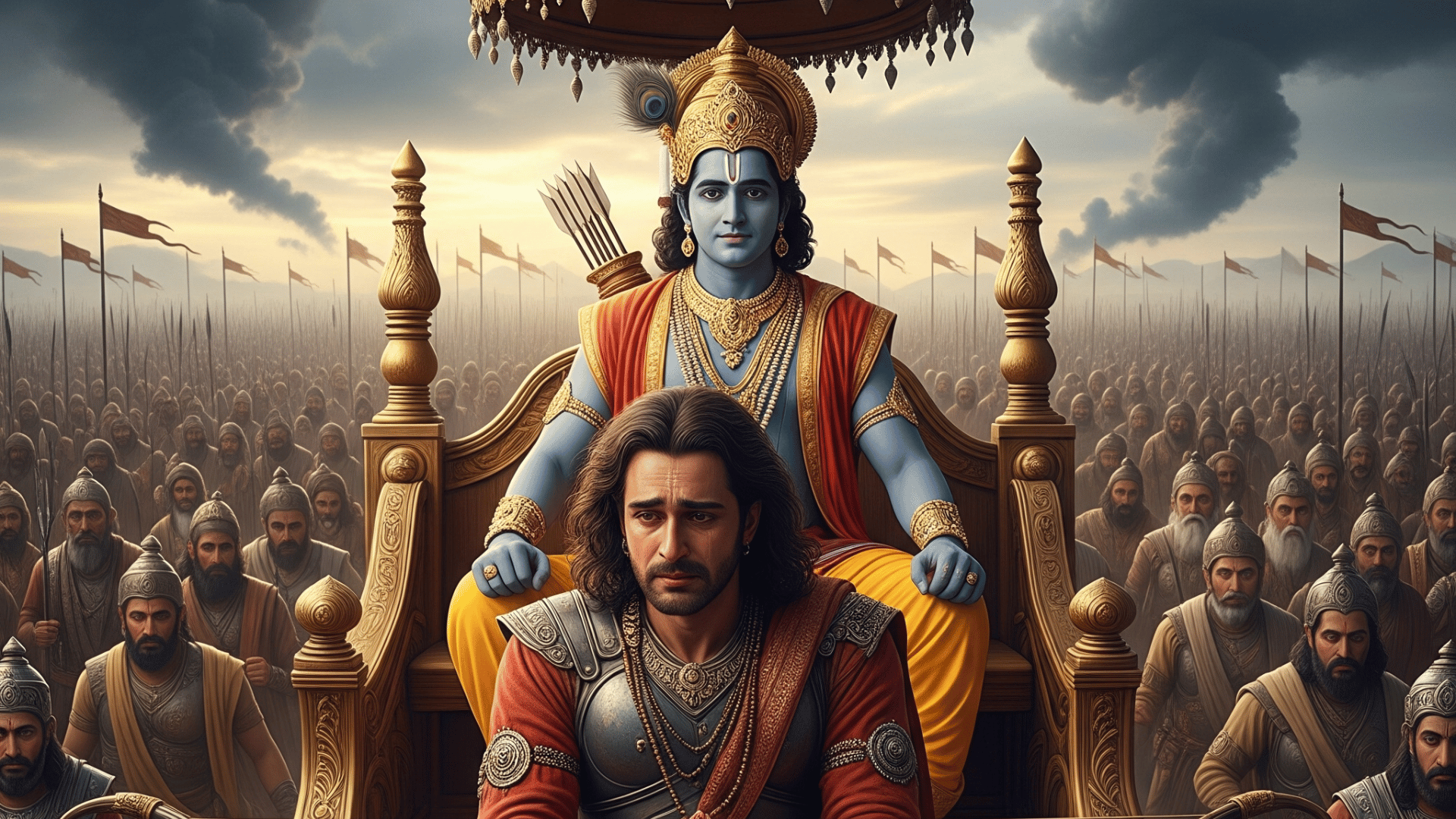
Chapter 1 – Arjuna’s Despondency
Verse 31
Nimittaani, ch, pashyaami, vipreetaani, keshav,
Na, ch, shreyH, anupashyaami, hatva, swajanam’, aahve ||31||
(Arjuna says):
O Keshava! I see only inauspicious omens, and I do not foresee any good in killing my own kinsmen in this battle.
Deep Interpretation / Expanded Explanation:
In this verse, Arjuna’s mental state is deeply disturbed and emotional. The war is about to begin, and Arjuna sees his own relatives, revered elders, and loved ones standing before him as opponents. In this moment:
- He starts sensing inauspicious signs even before the battle begins.
- His conscience begins to resist, and he sees no good coming out of this war.
- He believes that killing his own people will bring neither righteousness, nor glory, nor true happiness.
This verse reflects Arjuna’s internal conflict between duty (dharma) and compassion. He begins to question the moral justification of the war.
Key Points:
- “Nimittāni viparītāni” – refers to inauspicious omens; Arjuna’s mind is clouded by fear, attachment, and confusion.
- “Na cha śreyo'nupaśyāmi” – Arjuna feels that no spiritual or worldly benefit can come from this war.
- This verse highlights the peak of Arjuna’s sorrow, attachment, and emotional turmoil.
- From this point, the philosophical dialogue of the Gita begins, as Krishna prepares to guide him.
















